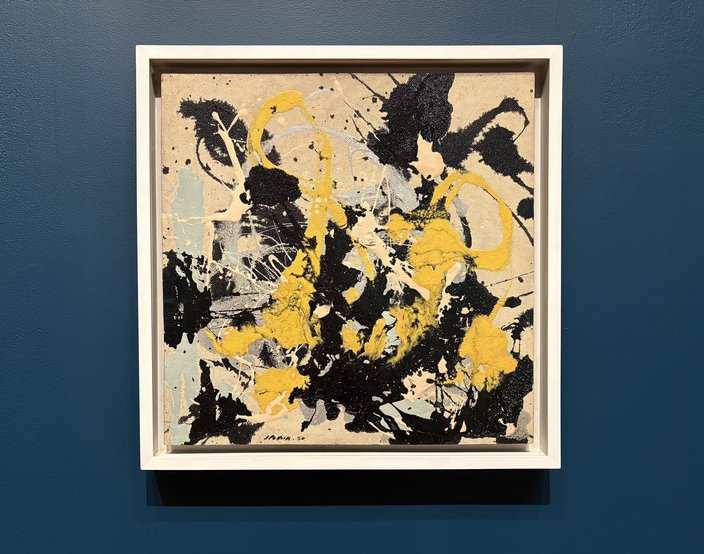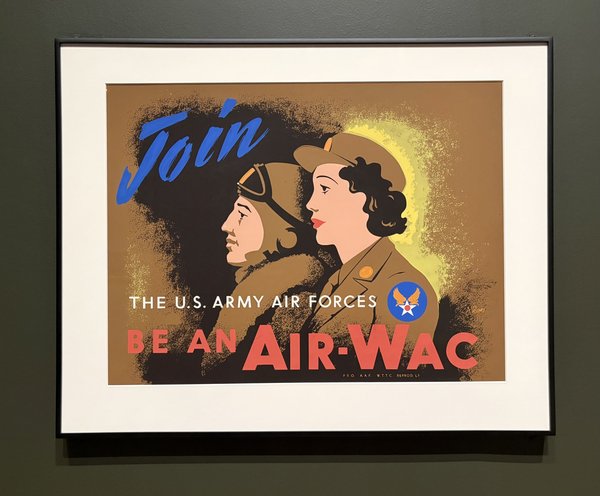A horseshoe-shaped exhibit at the Philadelphia Museum of Art takes visitors through the 1940s, from the dawn of World War II to the Atomic Age anxieties that carried into the next decade.
MORE: Philly's rooftop and outdoor bars are reopening. Here's when they return
This history is told through the paintings, photographs, sketches, fashion and furniture that artists created during this period. "Boom: Art and Design in the 1940s," opening Saturday, aims to challenge the perception that "creative pursuits ground to a halt" as war broke out, the museum's CEO Sasha Suda said in a statement. The 250-piece collection, sourced entirely from the Fairmount institute's collections, "shine(s) a spotlight on the remarkable creativity" of 1940s artists instead.
Visitors will recognize many names on the plaques, and not just the artists credited. Portraits of James Baldwin, Ella Fitzgerald, Josephine Baker, Marian Anderson and Tallulah Bankhead — cuddling a lion cub named Winston Churchill — are displayed along a single wall. Works by Georgia O'Keeffe, Jackson Pollock, Pablo Picasso, Salvador Dali and Ansel Adams also feature throughout the exhibit.

Style mavens will also spot couture from legendary designers like Christian Dior and Cristóbal Balenciaga. "Boom" showcases five dresses by Elsa Schiaparelli, the first three created between 1940-1941 and the latter pair fashioned in the second half of the decade. The effect of World War II is obvious on the earlier designs, one of which has oversized pockets intended to replace a handbag. Women carrying gas masks couldn't be burdened with a purse, too.
Illustrations from the war years also offer damning commentary. Three anti-Nazi posters, which once adorned storefront windows in Russia, dominate one corner. "Mr. Prejudice," a 1943 oil painting by Horace Pippin, depicts segregated soldiers standing in front of a Klansman and the Statue of Liberty. At the center of the picture, a man wields a hammer above a fracturing "V," symbolizing Allied victory.
Another striking image is "Deportation to Death" by Mexican graphic artist Leopoldo Méndez. The image is considered one of the earliest print depictions of the Nazi concentration camps; it was published in the antifascist "Black Book of Nazi Terror in Europe" in 1943.
The exhibit is organized roughly in chronological order. After wandering through displays of art made in response to or under the constraints of war, visitors will move onto works from the later half of the 1940s. These sections touch on the postwar demand for nice home decor, as seen through the furniture of Charles and Ray Eames, and futuristic designs inspired by the Atomic Age. One standout is a jagged brass hair clip with a studded orb at the center.
Artistic movements like cubism and abstract expressionism are also represented in "Boom," which runs through Sept. 1. At the end of the exhibit, viewers will find a pop-up gift shop with totes, T-shirts, posters and books related to the art they've just seen.
Follow Kristin & PhillyVoice on Twitter: @kristin_hunt
| @thePhillyVoice
Like us on Facebook: PhillyVoice
Have a news tip? Let us know.

